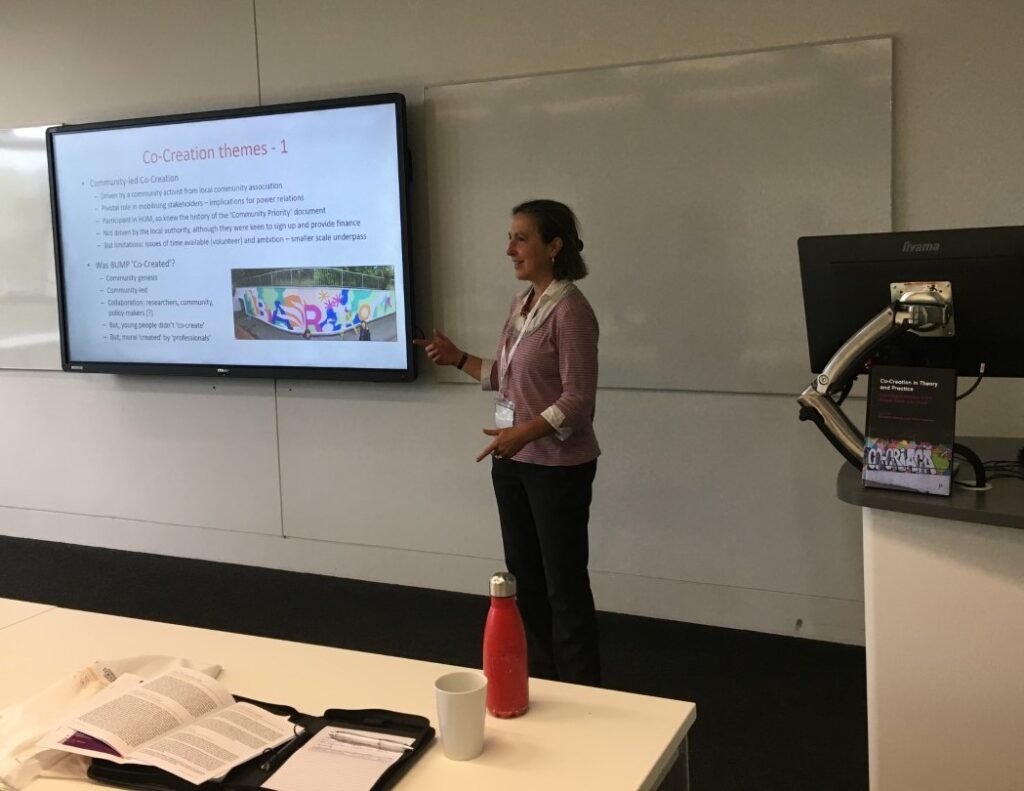Last month, GCHU Research Fellow Juliet Carpenter took part in the Final Conference of the Horizon 2020 ‘Co-Creation’ project, held at Oxford Brookes University (12-13 September 2022).
The project, which was launched by Juliet in 2017, brought together academic partners with civil society organisations from Oxford Brookes, Bath, Paris, Berlin, Brussels, Mexico City and Rio de Janeiro, to explore how Co-Creation theory and practice can challenge the barriers of territorial stigmatisation and marginalisation in cities.

The conference aimed to examine the possibilities as well as the limitations of Co-Creation in challenging boundaries, between different parts of the city, between urban communities, as well as between different disciplines and practices in academia and beyond.
The conference coincided with the publication in Open Access of the Special Issue of the journal Urban Planning, co-edited by Juliet Carpenter and Christina Horvath. The theme of the Special Issue, Co-Creation and the City: Arts-Based Methods and Participatory Approaches in Urban Planning, was inspired by debates that took place during the ‘Co-Creation’ project, exploring the importance of understanding experiential and embodied ways of knowing, including creative and arts-based approaches to participation within urban planning. The ten papers in the Special Issue explore creative approaches through a range of practices, including drama, storytelling and in the case of Juliet’s contribution, photography, in her paper ‘Picture This: Exploring Photovoice as a Method to Understand Lived Experiences in Marginal Neighbourhoods’, which draws on her research in the Downtown Eastside of Vancouver.
Although the Horizon 2020 Co-Creation project is coming to a close, the partnerships and networks that have been created are set to continue, with plans for further collaboration across disciplines and practices in the future.
